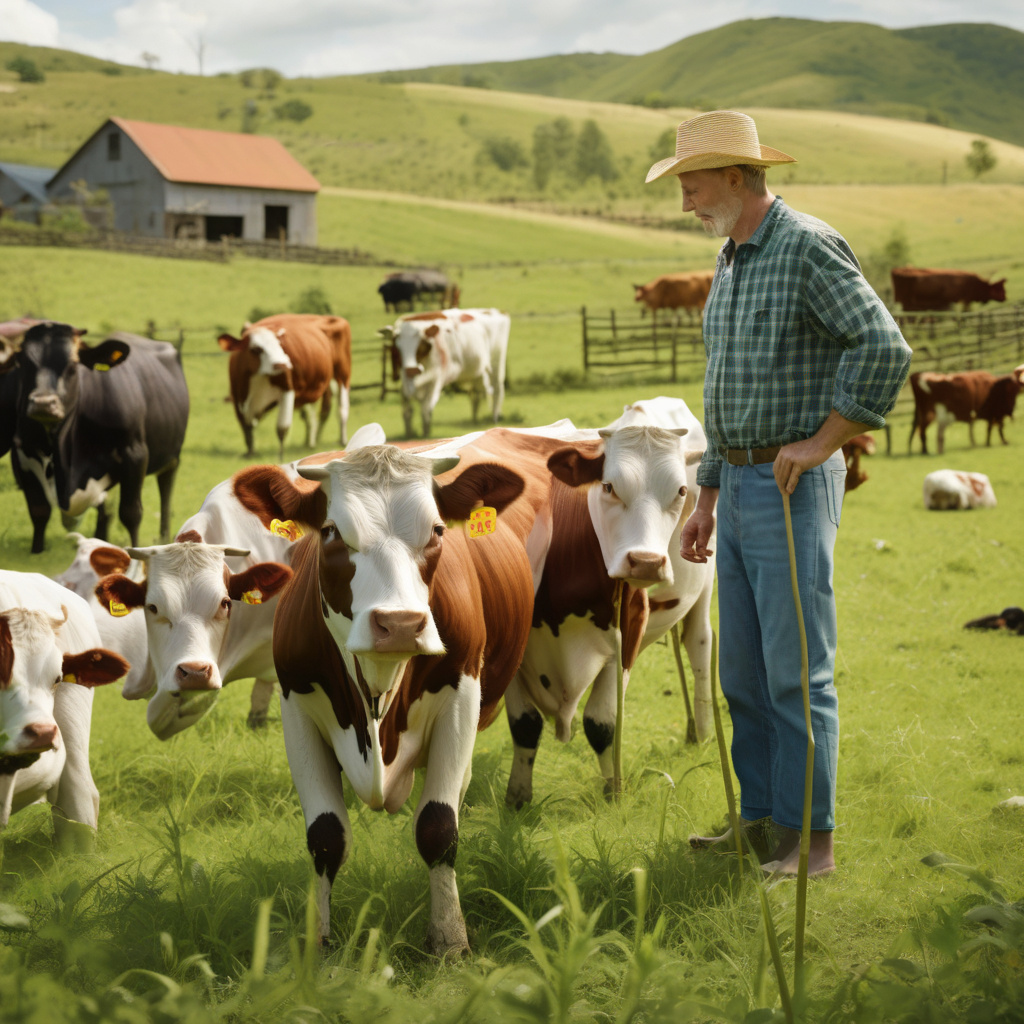FutureFeed: Revolutionizing Livestock Farming with Asparagopsis Seaweed
Livestock farming has long been associated with significant methane emissions, contributing to environmental issues such as climate change. However, a groundbreaking solution is on the horizon, offering a natural and effective way to tackle this problem head-on. FutureFeed, a pioneering company, is leading the charge in utilizing Asparagopsis seaweed as a livestock feed additive to reduce methane production.
The negative environmental impact of methane emissions from livestock is a pressing concern globally. As ruminant animals digest their feed, they produce methane as a byproduct, which is then released into the atmosphere during belching. This methane is a potent greenhouse gas, with a significantly greater warming potential than carbon dioxide.
FutureFeed’s innovative approach involves incorporating small amounts of Asparagopsis seaweed into livestock diets. This particular type of seaweed contains compounds that have been shown to significantly reduce the methane produced during digestion. By including it in animal feed, FutureFeed aims to mitigate methane emissions from livestock without compromising their health or growth.
Studies have demonstrated the effectiveness of Asparagopsis seaweed in reducing methane production in ruminants such as cattle, sheep, and goats. The seaweed works by inhibiting specific enzymes in the animals’ digestive systems that are responsible for methane synthesis. As a result, methane emissions can be cut by up to 80%, offering a promising solution to one of the most challenging aspects of livestock farming.
In addition to its environmental benefits, the use of Asparagopsis seaweed in livestock feed presents a practical and sustainable approach for farmers. By implementing this natural solution, farmers can actively contribute to reducing their carbon footprint and environmental impact. Furthermore, the scalability and feasibility of integrating seaweed into existing feeding practices make it a viable option for widespread adoption within the agricultural sector.
FutureFeed’s commitment to driving innovation in livestock farming has positioned them as a trailblazer in the field of methane reduction. By harnessing the power of Asparagopsis seaweed, they are not only addressing a critical environmental issue but also paving the way for a more sustainable future for the agriculture industry.
As awareness of the environmental impact of livestock farming continues to grow, solutions like FutureFeed’s Asparagopsis seaweed feed additive are becoming increasingly vital. By prioritizing sustainability and embracing natural alternatives, companies can play a significant role in mitigating climate change and fostering a greener planet for future generations.
In conclusion, FutureFeed’s use of Asparagopsis seaweed as a methane-reducing solution in livestock farming represents a significant step towards a more sustainable and environmentally conscious agricultural industry. By harnessing the power of nature, we have the opportunity to revolutionize traditional farming practices and create a more sustainable future for all.
innovation, livestockfarming, sustainability, methane reduction, FutureFeed












